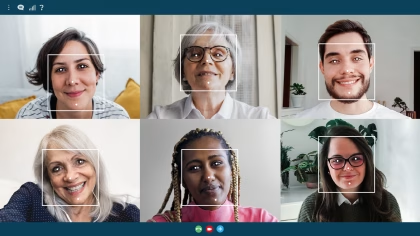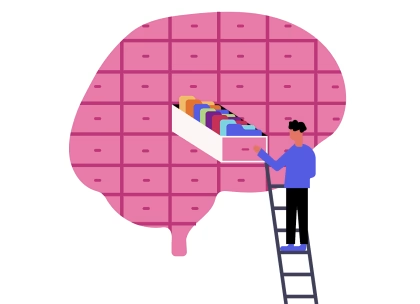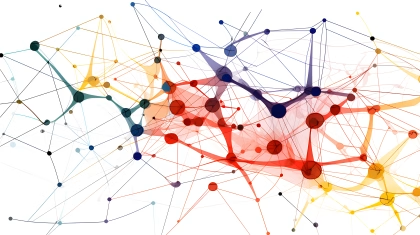It can’t be overstated how disruptive, confusing, and frightening the last few months have been around the world, as the new coronavirus, which causes COVID-19, continues to spread. Those of us who are not at immediate health risk are still under increased stress, and behaving irrationally in a number of ways. The global economy is struggling, health care systems around the globe are overwhelmed, and many of us are confined in small quarters by ourselves or with family, roommates, and/or pets. So, yeah, things are pretty abnormal right now.
In the interest of injecting some normalcy, I thought it would be helpful (or, at least, a welcome distraction!) to write about what we know about human emotion and behavior in times of stress or uncertainty. Before I dive into some human behavior research, though, please remember a few key points:
- Listen to the messaging from your health officials. Whether you’re locked down or not, these instructions most likely are not about your own health and safety. Statistically, YOU are likely not at huge risk from COVID-19, but your loved ones may be at risk. Your neighbors, and their loved ones, may be at risk. Your local healthcare system is almost definitely at risk. This isn’t about keeping you healthy – it’s about keeping the 5, 10, or 20 people near you healthy.
- Wash your hands! 20 seconds, with hot water and soap. Every time you leave your house or touch something that didn’t start the day in your house, 20 seconds is two rounds of “Happy Birthday” (or, for the parents in the audience, getting through the Daddy Shark verse of “Baby Shark”).
- Stay active, alert, and social. Your physical and mental health are still SUPER important. Most of us are working from home at this point, and it’s very easy to fall into a trap of working, internet-ing, and TV-ing until bedtime. This is the perfect cycle to suppress your immune system and put yourself at increased risk for increased anxious or depressive symptoms. Move around, go outside (following your local guidelines for doing so, obviously), and video chat with the people you care about. Maintaining social connections can be increasingly effortful right now, but put in that effort for your own well-being!
With that said, what can neuroscience tell us about how to navigate this unfamiliar territory? As I’ve written about in this space before, human behavior is notoriously unpredictable, especially in times of crisis. However, there are some clear principles of emotion neuroscience to keep in mind right now.

Protecting Yourself from Negative Emotional States
As a function of evolution, we are wired to notice, process, and remember emotional information over non-emotional information [1]. Moreover, not all emotional information receives equal access to this preferential processing: We are more likely to process negative information over positive information [2,3].
At a time in which we are seeing, hearing, and experiencing a large amount of negative and fear-inducing information, we are more likely to retain that negative information, and more likely to have that negative information be top of mind. That chronic exposure to emotionally-negative stimuli can lead to increased stress, as well as neurobiological changes that predispose us to be more likely to notice other negative stimuli [4].
So, what should we do to avoid this stress-inducing cycle? There are plenty of ways to reduce our negative exposure and protect ourselves from becoming overly stressed.
Physical activity
Physical activity, even around the home, can mitigate the production of stress hormones like cortisol [5] and reduce anxiety-like symptoms.
Social support
Social interaction provides myriad mental health benefits [6]. At iMotions, we’ve been doing “webcams on” for all meetings so we can see each other face to face, and holding virtual happy hour every few days to chat and play a quick game together.
Effortful regulation
Effortful regulation of our emotions can be challenging, but very effective for our well-being. You may be tempted to turn off the news, close your laptop, and avoid as much negative information as possible. That’s totally fine, if it helps! However, this strategy of emotion suppression – ignoring or suppressing our negative feelings – really only delays (and, sometimes, enhances) negative emotional states. Reappraisal, which is a method of thinking critically and re-framing the negative information we are exposed to and how it relates to us, is much more beneficial to your long-term emotional health and can have protective effects when you encounter new, negative stimuli [7]. Reappraisal takes quite a bit of cognitive effort, but the long-term effects are worth it!
If you have found other strategies to be helpful, please share them with us (and our readers!) on LinkedIn or Twitter!
Putting on Your Oxygen First
Before an airplane takes off, there’s a safety demonstration to remind you that in an emergency, you should secure your own oxygen mask before helping others. Most of us nod and dismiss that – duh, of course I will put mine on first – and then go back to our crossword puzzle.
Right now, you’re most likely not sitting on an airport tarmac, so I’ll ask you to think more critically about that instruction: In an emergency, would you put your oxygen mask before you put your toddler’s mask on her? What about a differently-abled partner that you’re traveling with? Or even an elderly seat-mate that you just met 20 minutes ago?
You’re not told to take care of yourself for selfish reasons, but for selfless reasons. If an airline cabin loses pressure, you have about 18 seconds of useful oxygen before hypoxia sets in, and you’re unable to help those around you. This is critical to keep in mind: Helping yourself is the best way to help others you care about!
As I mentioned earlier, for many of our readers, COVID-19 is a greater threat to those around you than it is to yourself. Almost all of us are stressed, though, and we know that in many circumstances stress can reduce empathy.
That means that if you aren’t taking care of yourself first and trying to manage your stress level, you’re going to be worse about taking care of those around you. If you are stressed or anxious, you’re less likely to notice potentially dangerous situations for those around you [8]. So do your best to follow some of the guidance we’ve outlined here, for both yourself and those around you (even if they aren’t in close physical proximity to you).

What Can Emotion Research Teach Us About Crises?
However abnormal things are right now, many of us (the royal, capital-U “us”) who have the luxury to do so are trying to keep our daily life as intact as possible. At iMotions, we’re all adjusting to working remotely, like many others are. Important research is still being done by our customers, and all of us – and you – realize that our life’s work can’t just pause indefinitely.
Right now, it’s probably hard to think about how biosensor research fits in with the global crisis we are all facing. If you’ll allow me, I’d like to articulate some big-picture thinking of how we may be able to channel human behavior research in the face of this crisis, because I see both current and future potential solutions thanks to our many clients who span so many research practices and commercial industries. Our customers work in:
- Logistics: How do we help delivery drivers maintain focus while bringing necessary, day-to-day supplies to peoples’ homes?
- Person-to-person interaction: How can telemedicine supplement in-person visits, to try and quell the overcrowding of hospitals and doctors’ offices?
- Communications: What are the most effective and impactful ways for health officials to provide accurate, clear, and resonant information to communities?
- Social psychology: How do we maintain our own mental health, in socially-isolated situations?
- User experience: At the most digitally-reliant time in history, how do people interact with the computer interfaces that keep them connected to close – or even distant – others?
It’s a scary time for everyone, but we are in a privileged position that gives us hope and optimism. We’re seeing the best of what our world has to offer, and that’s pretty flipping inspiring.
Please reach out to us if you’re interested in learning more, or figuring out if our platform can help your research, no matter what you’re working on. If we can help you develop new communications for public good, if we can help you secure some highly-contested grant funding, or even if we can help make your mobile game more engaging to give people a 10-minute reprieve from everything else that’s going on, we’ll be satisfied.
Let’s talk!
Schedule a free demo or get a quote to discover how our software and hardware solutions can support your research.
References
[1] Hamann, S. (2001). Cognitive and neural mechanisms of emotional memory. Trends in Cognitive Sciences, 5, 9, 394-400.
[2] Kensinger, E.A. (2009). Remember the details: Effects of emotion. Emotion Review, 1, 2, 99-113.
[3] Bennion, K.A., Ford, J.H., Murray, B.D. & Kensinger, E.A. (2013). Oversimplification in the study of emotional memory. Journal of the International Neuropsychological Society, 19, 9, 953-961.
[4] Andolina, D. & Borreca, A. (2017). The key role of the amygdala in stress. In B. Ferry (Ed.). The amygdala: Where emotions shape perception, learning, and memories. IntechOpen.
[5] Carmeli, E. (2013). Physical activity reduces stress and anxiety. Journal of Aging Science, 2, 1, e108.
[6] Ozbay, F., Johnson, D.C., Dimoulas, E., Morgan III, C.A., Charney, D. & Southwick, S. (2007). Social support and resilience to stress. Psychiatry (Edgemont), 4, 5, 35-40.
[7] Gross, J.J. & John, O. (2003). Individual differences in two emotion regulation processes: Implications for affect, relationships, and well-being. Journal of Personality and Social Psychology, 85, 348-362.
[8] Janelle, C.M. (2010). Anxiety, arousal and visual attention: A mechanistic account of performance variability. Journal of Sports Sciences, 20, 3, 237-251.










